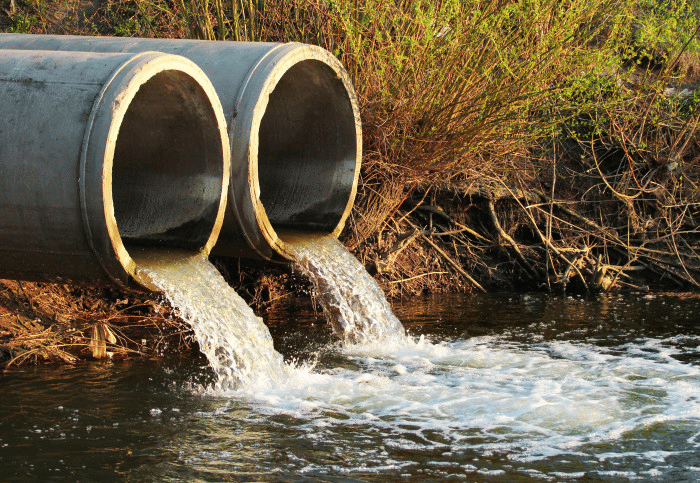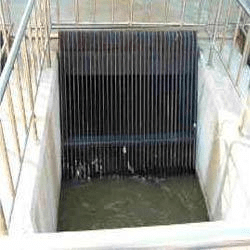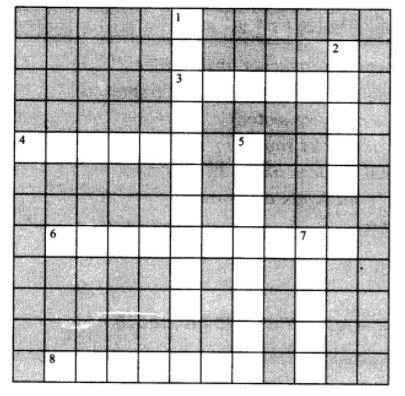NCERT Solutions for Class 7 Science - Wastewater Story
Q1: Fill in the blanks:
(a) Cleaning of water is a process of removing _______
Ans: Contaminants
(b) Wastewater released by houses is called _______
Ans: Sewage
(c) Dried _______ is used as manure.
Ans: Sludge
(d) Drains get blocked by _______ and _______
Ans: Cooking oil and fats
Q2: What is sewage? Explain why it is harmful to discharge untreated sewage into rivers or seas.
Ans: Sewage being drained into a river Wastewater released by houses is called sewage. Untreated sewage should not be discharged untreated into the sea because sewage consists of pollutants and harmful microorganisms which will contaminate water spreading diseases among people.
Sewage being drained into a river Wastewater released by houses is called sewage. Untreated sewage should not be discharged untreated into the sea because sewage consists of pollutants and harmful microorganisms which will contaminate water spreading diseases among people.
Q3: Why should oils and fats be not released in the drain? Explain.
Ans: Oils and fats should not be released in the drain because drains get blocked by cooking oil and fats.
Q4: Describe the steps involved in getting clarified water from wastewater.
Ans: The following steps are involved in clarifying wastewater:
- Filtration and sedimentation remove insoluble waste.
- Aeration promotes bacterial growth, breaking down human waste.
- Chlorination eliminates germs, making the water safe for consumption.
Q5: What is sludge? Explain how it is treated.
Ans: Sludge is a semi-solid slurry that can be produced from a range of industrial processes, from water treatment, wastewater treatment or on-site sanitation systems Semi-solids such as faeces that settle down during wastewater treatment are called sludge.
Sludge is a semi-solid slurry that can be produced from a range of industrial processes, from water treatment, wastewater treatment or on-site sanitation systems Semi-solids such as faeces that settle down during wastewater treatment are called sludge.
- This sludge is removed using a scraper and then transferred to a tank where it is decomposed by anaerobic bacteria to produce biogas. This biogas is used as a low-cost fuel for heating, cooking, etc. It is also used to produce electricity.
- Dried Sludge is used as manure instead of taking up space in a landfill or other disposal facility to improve and maintain productive soils and stimulate plant growth because it has nutrient-rich organic materials.
Q6: Untreated human excreta is a health hazard. Explain.
Ans:  When we don't treat human waste, it has tiny germs that can make people very sick with diseases like cholera, diarrhea, jaundice, and typhoid. These germs can easily spread to people through bugs, and food or water that has the germs. So, not treating human waste is dangerous for our health.
When we don't treat human waste, it has tiny germs that can make people very sick with diseases like cholera, diarrhea, jaundice, and typhoid. These germs can easily spread to people through bugs, and food or water that has the germs. So, not treating human waste is dangerous for our health.
Q7: Name two chemicals used to disinfect water.
Ans: Bleaching powder and Chlorine tablets
Q8: Explain the function of bar screens in a wastewater treatment plant.
Ans: Bar screens are large filters that are placed in the form of vertical screens. Large solid wastes like sticks, pebbles, sand, cans, plastic bottles, plastic bags, etc. are filtered out when the wastewater moves through the bar screen. Bar Screens
Bar Screens
Q9: Explain the relationship between sanitation and disease.
Ans: Sanitation and disease are closely related. Lack of sanitation leads to unhygienic conditions which creates many communicable diseases. Maintenance of sanitation removes the chances of such diseases.
Q10: Outline your role as an active citizen in relation to sanitation.
Ans: My role as an active citizen can be in maintaining sanitation in the neighborhood and in public places. For this, I shall follow these steps:
- Dispose of waste responsibly in designated bins.
- Use separate recyclables from regular waste.
- Participate in local clean-up drives.
- Spread awareness about proper waste disposal.
- Report any sanitation issues to local authorities.
- Ensure timely resolution of problems like garbage accumulation or blocked drains.
- Use water efficiently to prevent wastage.
- Encourage the community to adopt water-saving practices.
- Follow personal hygiene habits to prevent the spread of diseases.
- Engage with the community in discussions on sanitation.
Q11: Here is a crossword puzzle. 
Across
3. Liquid waste products
4. Solid waste extracted in sewage treatment
6. A word related to hygiene
8. Waste matter discharged from the human body
Down
1. Used water
2. A pipe carrying sewage
5. Micro-organisms which cause cholera
7. A chemical to disinfect water
Ans:
Across
3. Sewage
4. Sludge
6. Sanitation
4. Excreta
Down
1. Wastewater
2. Sewer
5. Bacteria
7. Ozone

Q12: Study the following statements about ozone:
(a) It is essential for the breathing of living organisms
(b) It is used to disinfect water
(c) It absorbs ultraviolet rays
(d) Its proportion in air is about 3%
Which of these statements are correct?
(i) (a), (b) and (c)
(ii) (b) and (c)
(iii) (a) and (d)
(iv) All four
Ans: (ii) b and c
|
111 videos|246 docs|28 tests
|
FAQs on NCERT Solutions for Class 7 Science - Wastewater Story
| 1. What is wastewater? |  |
| 2. Why is it important to treat wastewater? |  |
| 3. How is wastewater treated? |  |
| 4. What are the benefits of wastewater treatment? |  |
| 5. What are the challenges in wastewater management? |  |

|
Explore Courses for Class 7 exam
|

|


















